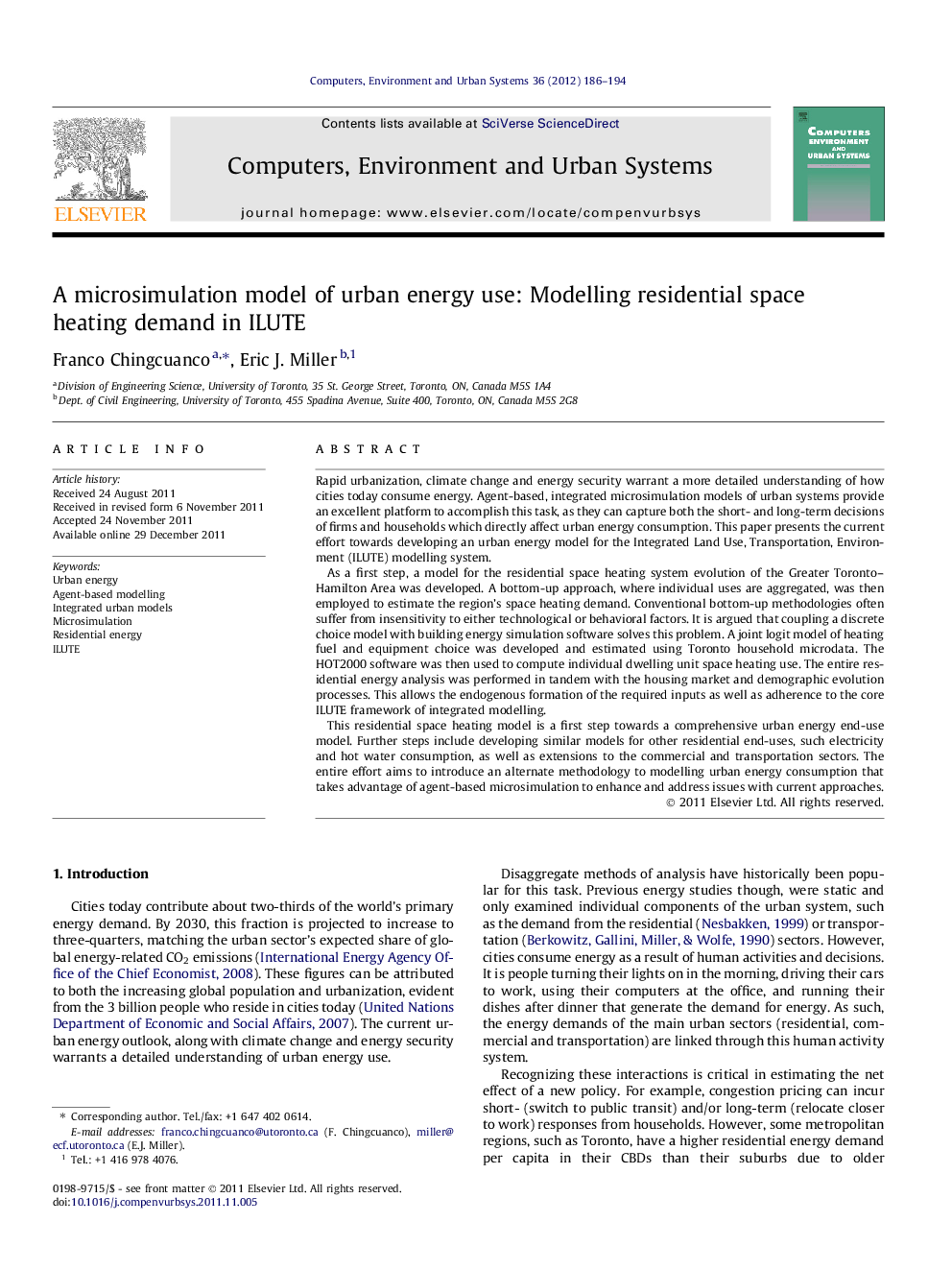| کد مقاله | کد نشریه | سال انتشار | مقاله انگلیسی | نسخه تمام متن |
|---|---|---|---|---|
| 506442 | 864908 | 2012 | 9 صفحه PDF | دانلود رایگان |

Rapid urbanization, climate change and energy security warrant a more detailed understanding of how cities today consume energy. Agent-based, integrated microsimulation models of urban systems provide an excellent platform to accomplish this task, as they can capture both the short- and long-term decisions of firms and households which directly affect urban energy consumption. This paper presents the current effort towards developing an urban energy model for the Integrated Land Use, Transportation, Environment (ILUTE) modelling system.As a first step, a model for the residential space heating system evolution of the Greater Toronto–Hamilton Area was developed. A bottom-up approach, where individual uses are aggregated, was then employed to estimate the region’s space heating demand. Conventional bottom-up methodologies often suffer from insensitivity to either technological or behavioral factors. It is argued that coupling a discrete choice model with building energy simulation software solves this problem. A joint logit model of heating fuel and equipment choice was developed and estimated using Toronto household microdata. The HOT2000 software was then used to compute individual dwelling unit space heating use. The entire residential energy analysis was performed in tandem with the housing market and demographic evolution processes. This allows the endogenous formation of the required inputs as well as adherence to the core ILUTE framework of integrated modelling.This residential space heating model is a first step towards a comprehensive urban energy end-use model. Further steps include developing similar models for other residential end-uses, such electricity and hot water consumption, as well as extensions to the commercial and transportation sectors. The entire effort aims to introduce an alternate methodology to modelling urban energy consumption that takes advantage of agent-based microsimulation to enhance and address issues with current approaches.
► We developed a model for residential space heating demand.
► The approach combined a logit model with a building energy simulation tool.
► This methodology addressed concerns with existing approaches.
► Results from a 20-year simulation show good performance from the model.
Journal: Computers, Environment and Urban Systems - Volume 36, Issue 2, March 2012, Pages 186–194